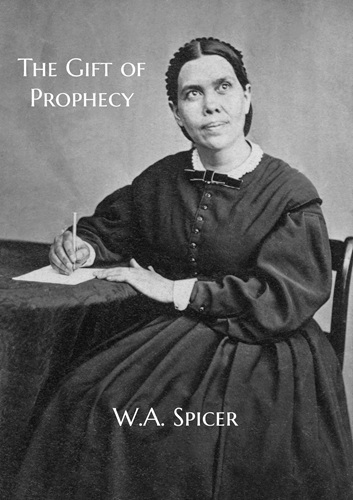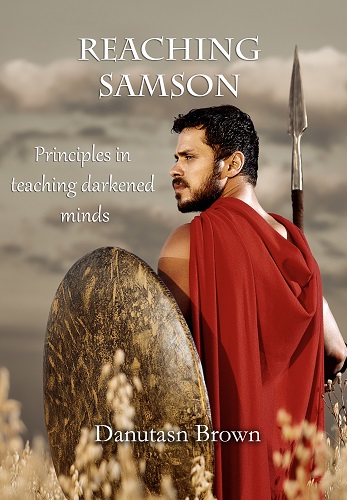Excerpt from Luther's Dispute with Eck (Leipzig Debate of 1519)
I wanted to share this fascinating excerpt from D'Aubigne's book The History of the Reformation with its quotes and commentary on the debate between Martin Luther and Johann Eck. I think it may prepare us for the type of disputes we may get into in the future. In the leadup to this 20 day debate, Martin Luther tries his best to avoid it. Johann Eck wants the glory of taking him down. But eventually it comes time that truth and error must be made clear, and it through this many minds are brought to consider things they had never thought of before.
I particularly find a few things interesting. The first is the sophist tactics of Eck, particularly to associate Luther with the hated enemies of the people watching - the residents of Leipzig hated the Hussites, and Eck said Luther's doctrine was Hussite. Luther is troubled by this... he knows to be associated with them is dangerous, but he doesn't want to reject their witness for truth also. How he deals with this is fascinating.
Also of note is the role the existence of the Greek Orthodox Church has on the debate. Eck, to satisfy his argument that the Pope is head of the church, needs all Christians who don't accept it to be heretics. Yet the Greek Church never accepted it, and their ancient status didn't allow them to be considered heretics. It is a powerful argument Luther has, and one we should remember. The Orthodox Church has never really accepted Penal Substitution (Adrian added these observations into his booklet What is the Cross?), and today I also shared an article by Alex on how some of their believers understood the everlasting cross of sufferings of Jesus.
Finally the last point is how God used Luther to move away from establishing his church on the traditions of men to the word of God. We take it for granted now, but this was a remarkably hard struggle. Notice the steps, and notice Eck's reaction:
- In 1516 and 1517, he had only attacked the sermons of the indulgence-hawkers and the scholastic doctrines, but had respected the papal decrees.
- Somewhat later he had rejected these decrees, and had appealed to a council.
- Now he had thrown off even this latter authority, declaring that no council could lay down a new article of faith, and claim to be infallible.
- Thus had all human authorities fallen successively before; the sands that the rain and the torrents carry with them had disappeared; and for rebuilding the ruined house of the Lord nothing remained but the everlasting rock of the Word of God.
- “Reverend father,” said Eck, “if you believe that a council, regularly assembled, can err, you are in my eyes nothing better than a heathen and a publican!”
D Aubigne's book The History of the Reformation was read out loud by James and Ellen White to their children when they were young - its drama, pace, and narrative easily able to keep the attention of the children. This is what Ellen White said, saying that if we are to give gifts, give gifts that would benefit - and then she names what she thinks most benefits: books.
"While urging upon all the duty of first bringing their offerings to God, I would not wholly condemn the practice of making Christmas and New Years gifts to our friends. It is right to bestow upon one another tokens of love and remembrance if we do not in this forget God, our best friend. We should make our gifts such as will prove a real benefit to the receiver. I would recommend such books as will be an aid in understanding the word of God, or that will increase our love for its precepts. Provide something to be read during these long winter evenings. For those who can procure it, D'Aubigne's History of the Reformation will be both interesting and profitable. From this work we may gain some knowledge of what has been accomplished in the past in the great work of reform. We can see how God poured light into the minds of those who searched his word, how much the men ordained and sent forth by him were willing to suffer for the truth's sake, and how hard it is for the great mass of mankind to renounce their errors and to receive and obey the teachings of the Scriptures. During the winter evenings, when our children were young, we read from this history with the deepest interest. We made it a practice to read instructive and interesting books, with the Bible, in the family circle, and our children were always happy as we thus entertained them. Thus we prevented a restless desire to be out in the street with young companions, and at the same time cultivated in them a taste for solid reading." RH December 26, 1882, par. 18
May we reclaim this amazing book - the drama,intrigue and profundity of the events it chronicles puts any epic invented by man to shame, whether it be The Lord of the Rings, Dune, Game of Thrones, The Odyssey. I thank God we have such well written history, that we might realize
"...if I have seen further [than others], it is by standing on the shoulders of giants." - Isaac Newton, 1675
"For who sees anything different in you? What do you have that you did not receive? If then you received it, why do you boast as if you did not receive it?" - 1 Corinthians 4:7
-------
Eck. — “Well then, I will come to the point. The worthy doctor calls upon me to prove that the primacy of the Church of Rome is of Divine right. I will prove it by this expression of Christ: Thou art Peter, and on this rock will I build my Church. Saint Augustine, in one of his epistles, has thus explained the meaning of this passage ‘Thou art Peter, and on this rock (that is to say, on Peter) I will build my Church.’ It is true that in another place the same father has explained that by this rock we should understand Christ himself, but he has not retracted his former exposition.”
Luther. — “If the reverend doctor desires to attack me, let him first reconcile these contradictions in Saint Augustine. For it is most certain that Augustine has said many times that the rock was Christ, and perhaps not more than once that it was Peter himself. But even should Saint Augustine and all the Fathers say that the Apostle is the rock of which Christ speaks, I would resist them, single-handed, in reliance upon the Holy Scriptures, that is, on Divine right; for it is written: Other foundation can no man lay than that is laid, which is Jesus Christ. Peter himself terms Christ the chief corner-stone, and a living stone on which we are built up a spiritual house.”
Eck. — “I am surprised at the humility and modesty with which the reverend doctor undertakes to oppose, alone, so many illustrious Fathers, and pretends to know more than the sovereign pontiffs, the councils, the doctors, and the universities! ......It would be surprising, no doubt, if God had hidden the truth from so many saints and martyrs — until the advent of the reverend father!”
Luther. — “The Fathers are not against me. Saint Augustine and Saint Ambrose, both most excellent doctors, teach as I teach. Super isto articulo fidei, fundata est Ecclesia, says Saint Ambrose, when explaining what is meant by the rock on which the Church is built. Let my opponent then set a curb upon his tongue. To express himself as he does, will only serve to excite contention, and not be to discuss like a true doctor.”
Eck had no idea that his opponent’s learning was so extensive, and that he would be able to extricate himself from the toils that were drawn around him. “The reverend doctor,” said he, “has come well armed into the lists. I beg your lordships to excuse me, if I do not exhibit such accuracy of research. I came here to discuss, and not to make a book.”
Eck was surprised but not beaten. As he had no more arguments to adduce, he had a recourse to a wretched and spiteful trick, which, if it did not vanquish his antagonist, must at least embarrass him greatly. If the accusation of being Bohemian, a heretic, a Hussite, can be fixed upon Luther, he is vanquished; for the Bohemians were objects of abhorrence in the Church. The scene of combat was not far from the frontiers of Bohemia; Saxony, after the sentence pronounced on John Huss by the Council of Constance, had been exposed to all the horrors of a long and ruinous war; it was its boast to have resisted the Hussites at that time; the university of Leipsic had been founded in opposition to the tendencies of John Huss; and this discussion was going on in the presence of princes, nobles, and citizens, whose fathers had fallen in that celebrated contest. To insinuate that Luther and Huss are of one mind, will be to inflict a most terrible blow on the former. It is to this stratagem that the Ingolstadt doctor now has recourse:
“From the earliest times, all good Christians have acknowledged that the Church of Rome derives its primacy direct from Christ himself, and not from human right. I must confess, however, that the Bohemians, while they obstinately defended their errors, attacked this doctrine. I beg the worthy father’s pardon, if I am an enemy of the Bohemians, because they are enemies of the church, and if the present discussion has called these heretics to my recollection; for, in my humble opinion, the doctor’s conclusions are in every way favorable to these errors. It is even asserted that the Hussites are loudly boasting of it.”
Eck had calculated well: his partisans received this perfidious insinuation with the greatest favor. There was a movement of joy among the audience. “These insults,” said the reformer afterwards, “tickled them much more agreeably than the discussion itself.”
Luther. — “I do not like and I never shall like a schism. Since on their own authority the Bohemians have separated from our unity, they have done wrong, even if the Divine right had pronounced in favor of their doctrines; for the supreme Divine right is charity and oneness of mind.”
It was during the morning sitting of the 5th July that Luther had made use of this language. The meeting broke up shortly after, as it was the hour of dinner. Luther felt ill at ease. Had he not gone too far in thus condemning the Christians of Bohemia? Did they not hold the doctrines that Luther is now maintaining? He saw all the difficulties of his position. Shall he rise up against a council that condemned John Huss, or shall he deny that sublime idea of a universal Christian Church which had taken full possession of his mind? The unshaken Luther did not hesitate. He will do his duty, whatever may be the consequences. Accordingly when the assembly met again at two in the afternoon, he was the first to speak. He said with firmness:
“Among the articles of faith held by John Huss and the Bohemians, there are some that are most christian. This is a positive certainty. Here, for instance, is one: ‘That there is but one universal Church;’ and here is another: ‘It is not necessary for salvation to believe the Roman Church superior to all others.’ It is of little consequence to me whether these things were said by Wickliffe or by Huss......they are truth.”
Luther’s declaration produced a great sensation among his hearers. Huss — Wickliffe — those odious names, pronounced with approbation by a monk in the midst of a catholic assembly! An almost general murmur ran round the hall. Duke George himself felt alarmed. He fancied he saw that banner of civil war upraised in Saxony which had for so many years desolated the states of his maternal ancestors. Unable to suppress his emotion, he placed his hands on his hips, shook his head, and exclaimed aloud, so that all the assembly heard him, “He is carried away by rage!” The whole meeting was agitated: they rose up, each man speaking to his neighbor. Those who had given way to drowsiness awoke. Luther’s friends were in great perplexity; while his enemies exulted. Many who had thus far listened to him with pleasure began to entertain doubts of his orthodoxy. The impression produced on Duke George’s mind by these words was never effaced; from this moment he looked upon the reformer with an evil eye, and became his enemy.
Luther did not suffer himself to be intimidated by these murmurs. One of his principal arguments was, that the Greeks had never recognized the pope, and yet they had never been declared heretics; that the Greek Church had existed, still existed, and would exist, without the pope, and that it as much belonged to Christ as the Church of Rome did. Eck, on the contrary, impudently maintained that the Christian and the Roman Church were one and the same; that the Greeks and Orientals, in abandoning the pope, had also abandoned the christian faith, and were indisputably heretics. “What!” exclaimed Luther, “are not Gregory of Naziangum, Basil the Great, Epiphanius, Chrysostom, and an immense number besides of Greek bishops — are they not saved? and yet they did not believe that the Church of Rome was above the other Churches!......It is not in the power of the Roman pontiffs to make new articles of faith. The christian believer acknowledges no other authority than Holy Scripture. This alone is the right Divine. I beg the worthy doctor to concede that the Roman pontiffs were men, and that he will not make them gods.”
Eck then resorted to one of those jests which give a specious air of triumph to him who employs them:
“The revered father is a very poor cook,” said he; “he has made a terrible hodge-podge of Greek saints and heretics; so that the odor of sanctity in the one prevents us from smelling the poison of the others.”
Luther, interrupting Eck with warmth. — “The worthy doctor is becoming abusive. In my opinion, there can be no communion between Christ and Belial.” Luther had made a great stride in advance. In 1516 and 1517, he had only attacked the sermons of the indulgence-hawkers and the scholastic doctrines, but had respected the papal decrees. Somewhat later he had rejected these decrees, and had appealed to a council. Now he had thrown off even this latter authority, declaring that no council could lay down a new article of faith, and claim to be infallible. Thus had all human authorities fallen successively before; the sands that the rain and the torrents carry with them had disappeared; and for rebuilding the ruined house of the Lord nothing remained but the everlasting rock of the Word of God. “Reverend father,” said Eck, “if you believe that a council, regularly assembled, can err, you are in my eyes nothing better than a heathen and a publican!”





